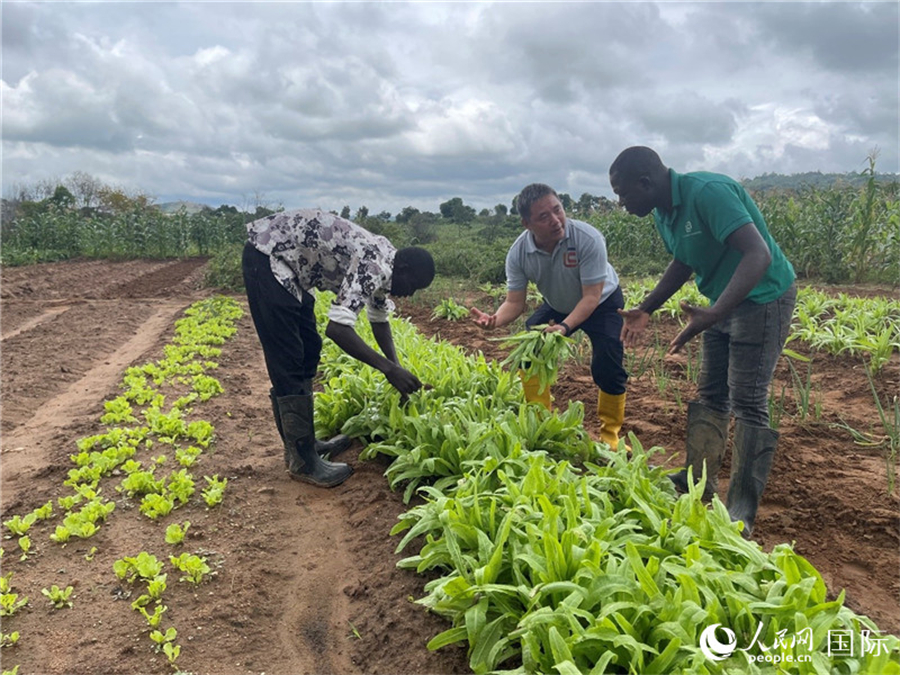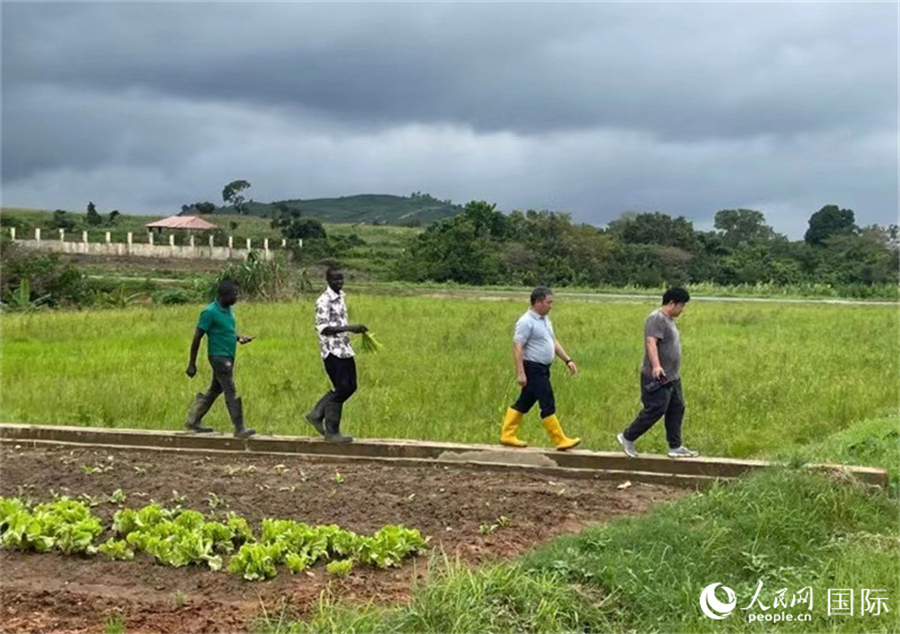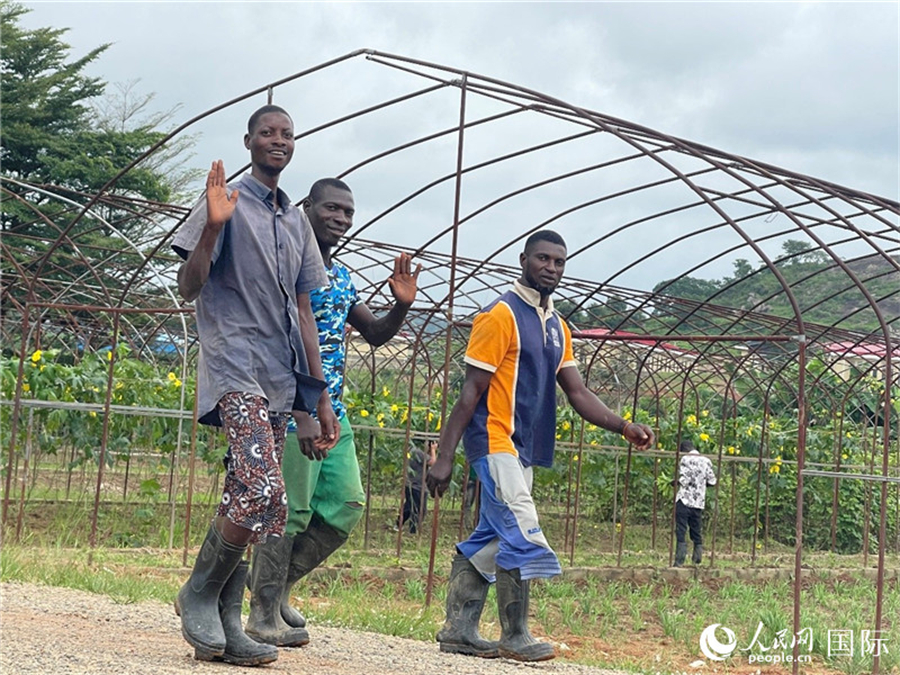Chinese agritech expert cultivates hope in Nigeria's fields

Chinese agritech expert Wang Xuemin (center) works with his Nigerian students Bulus Inus (left) and Bitrus Salka (right) in a field in Nigeria. [People's Daily Online/Zhao Yanhong]
As rain poured down one morning in early August at the China-aided Nigeria Agricultural Demonstration Center in Abuja, capital of Nigeria, Chinese agritech expert Wang Xuemin didn't stop thinning out crowded rice seedlings, while Bulus Inus, one of Wang's students from Nigeria's Borno state, observed attentively to learn from his teacher.
"Rain is good for the crops," Wang explained to People's Daily Online with a smile.
Since he first came to Nigeria as a technical expert of a program under the China-Nigeria South-South Agricultural Cooperation in October 2003, Wang has spent nearly two decades cultivating Nigeria's farmlands, becoming an important contributor and witness to China's agricultural assistance programs in Nigeria, and China-Nigeria cooperation in the agriculture sector.
Nigeria is the most populous African country, to which the importance of food is self-evident. However, though the country is endowed with vast expanses of arable land and favorable natural conditions, it suffers from serious food shortages every year due to the underdeveloped state of its agriculture sector.
Nigeria imported 2.2 million tonnes of rice each year, and had been a net food importer for 20 consecutive years, according to data released by the China Council for the Promotion of International Trade in 2020.
Upholding his original aspiration of "helping locals improve rice cultivation and achieve self-sufficiency," Wang has worked tirelessly to introduce farm tools, develop new rice varieties, and teach agricultural techniques and technologies to Nigerian farmers.

People's Daily Online reporter Liu Ning (first from right), Chinese agritech expert Wang Xuemin (second from right), and two Nigerian men, Bulus Inus and Bitrus Salka, walk on a path in fields in Nigeria. [People's Daily Online/Zhao Yanhong]
In 2003, Wang introduced basic Chinese farm tools, including threshing machines and winnowing machines, to local farmers. The machines have helped them increase threshing efficiency by five to seven times.
"When I first came here, I saw Nigerian farmers put crops on the ground and beat them with sticks to separate the grains," Wang recalled.
Since 2008, Wang and his colleagues have been conducting experiments to improve rice varieties. In 2017, they developed a new variety called Gawal R 1, which has won the approval of Nigeria's agricultural authorities and is now widely grown across the country.
Because its yield is about 30 percent higher than that of the major varieties previously grown in the country, the new variety has been very popular among local farmers.
"All of our rice seeds are ordered by local farmers before they ripen," Wang said.
Over the past five years, the new variety has increased Nigeria's rice output by over two million tonnes, benefiting at least 200,000 farmer households.
Dreaming of turning Nigeria into the "granary of Africa,” Wang has also taught agricultural techniques and technologies to Nigerian farmers. Bulus is one of his many students who have greatly benefited from his help.
"After seeing the Chinese expert apply fertilizer near the roots, I realized the importance of targeted fertilizer application," said Bulus, who is 41 years old. Compared to his past practice of scattering fertilizer across fields, Bulus found the Chinese method far more effective.

Employees of the China-aided Nigeria Agricultural Demonstration Center in Abuja, capital of Nigeria, greet People's Daily Online reporters in Chinese. [People's Daily Online/Zhao Yanhong]
In 2015, Bulus joined Green Agriculture West Africa Ltd. (GAWAL), an Abuja-based company established in 2006 by Chinese companies to facilitate China-Nigeria agricultural cooperation. Since 2016, Bulus has taught what he learned from his Chinese teacher to his fellow villagers and his family, helping them significantly boost crop yields.
Meanwhile, Bulus has been promoted to supervisor in charge of 15 Nigerian employees at GAWAL. He has relocated his wife and three children from his hometown to Abuja.
Since 2006, GAWAL has trained at least five technical personnel annually for Nigeria's Kebbi state. The China-aided Nigeria Agricultural Demonstration Center in Abuja has also provided training for locals.
According to Wang, who is now assistant general manager at GAWAL, the center provided two training sessions on an annual basis for Nigerian agro-technicians, and helped over 400 participants between 2016 and 2019.
























